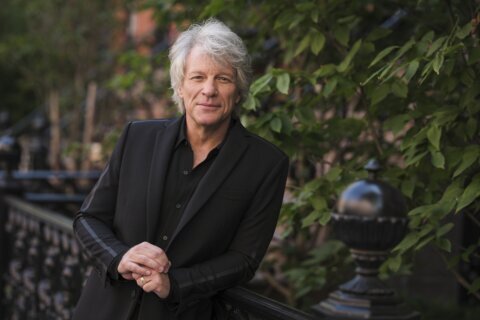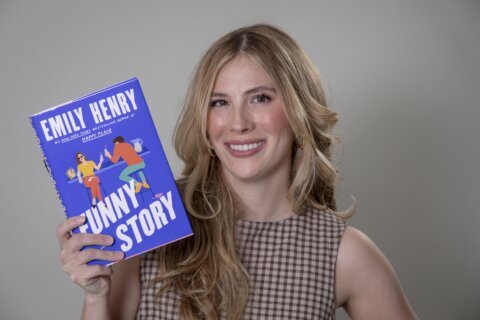In 2015, Emma Donoghue’s novel “Room” (2010) was adapted into a masterful movie with an Oscar-winning performance that remains one of my Top 10 films of the past decade.
This week, her novel “The Wonder” (2016) becomes an avant-garde Netflix film that isn’t nearly as accessible to mainstream audiences but is beautifully shot with plenty of dark religious themes to chew on — or not chew on, depending on your belief in divine fasting.
Set in 1862 Ireland in the aftermath of the Irish Potato Famine (a.k.a The Great Hunger), a nurse, Elizabeth “Lib” Wright, visits a village to observe a young girl, Anna O’Donnell, who claims to have not eaten for four months. Lib argues that’s impossible, but the religious leaders insist that it’s a miracle: the last thing she ate was a wafer at holy communion.
“Oh, so bread,” Lib says. “No, the body of Christ,” the girl’s devout mother replies.
Florence Pugh, who earned an Oscar nod for Greta Gerwig’s “Little Women” (2019) and carried Ari Aster’s horror masterpiece “Midsummer” (2019), wears her skepticism on her sleeve as Lib. Her motherly instincts stem from losing a child, grieving each night by holding her baby’s shoes, pricking her finger with a needle and drinking liquid opioids.
This masochism gives her something in common with her young patient, played by an eerie Kíla Lord Cassidy, who makes us believe that Anna believes in her divine mission. Speaking in hushed prayers, Anna hopes that her fasting will ensure her dead brother’s place in heaven. It’s Lib’s goal to convince her hat self-sacrifice might not be the answer.
Pugh and Cassidy invite parallels to Brie Larson and Jacob Tremblay in “Room” with a scarred woman caring for a naive kid in claustrophobic confines, but the better comparison may be “The Exorcist” (1973). Is Pugh any different than Max Von Sydow tending to the bedside of Linda Blair? It may be drama instead of horror, but it’s still the mystery of faith.
The premise of divine fasting is a fascinating hook but its sustainability for an entire movie depends on your attention span. The gradual pacing in such a brooding atmosphere of dim interiors and overcast skies is so dreary that it will turn off casual Netflix viewers, but if you lean in closely to engage with the images, you’ll find plenty of symbolic weight to analyze.
Director Sebastián Lelio (“A Fantastic Woman”) delivers masterful dissolves, sometimes for aesthetic effect, transitioning from a mountain range to Lib’s body laying in the exact same position. Other times it’s metaphoric, dissolving to Pugh’s face from a spinning toy that’s an optical illusion of a bird in and out of a cage, suggesting that Lib is trapped in her grief.
This refrain of “in, out, in, out” ties into the film’s post-modern bookends as Lelio opens with a present-day image of a movie soundstage before panning to actors on set dressed in period clothing to immerse us in the world of make-believe. We wrap back around to the soundstage at the end, reminding us that the movie we just watched was indeed a tale.
It’s an audacious, thought-provoking prism by Lelio that would have worked better if it remained as bookends rather than intruding upon the middle of the story with a character’s fourth-wall break to speak directly to the audience. Lelio should have added more fourth-wall breaks or removed them completely. As is, one isolated break feels jarring on its own.
Perhaps Lelio felt he needed it to suggest artificial faith, a theme that’s gnawed at many a filmmaker, from Ingmar Bergman’s “Winter Light” (1963) to Martin Scorsese’s “Silence” (2016). And yet, “The Wonder” mostly plays like an inverse of Carl Theodor Dreyer’s Danish masterpiece “Ordet” (1955) about a devout widower whose son claims to be Christ.
While Dreyer presented real-world skepticism building to a shocking twist of faith, Lelio presents the opposite, laying out divine possibilities of “manna from heaven” before shocking real-world revelations that are deeply disturbing. His ultimate quest is to burn down organized religion, sending it up in flames like the smoke of a Vatican chimney.
Your own faith or doubt will cloud your judgement of the film’s iconoclastic message, just as the film’s arthouse glory will alienate mainstream viewers. This makes its Netflix rollout a bit oxymoronic like “The Power of the Dog,” as both would play much better on a big screen at film festivals than to a general audience distracted by doing laundry at home.
“The Wonder” won’t be for everybody. It’s feast or famine. It all depends on your taste.









